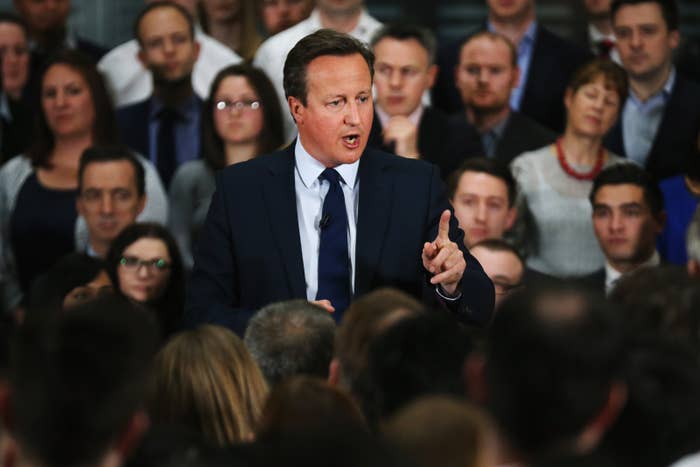
The government's tax collectors are failing to tackle tax evasion and need to prosecute far more cheats who hide their money overseas, the public spending watchdog has warned.
The influential Commons public accounts committee said HM Revenue and Customs needed to boost the number of investigations into "wealthy tax evaders" to prove there was not one rule for the rich and another for everyone else.
Tax fraud accounts for £16 billion of uncollected revenue a year – yet HMRC does not have a "clear strategy" for how to deal with it, the committee warned in a damning report on Friday.
The findings come in the wake of the row over David Cameron's tax affairs and the Panama Papers leak, which detailed how the rich use tax havens to hide their vast wealth.
Labour MP Meg Hillier, the committee's chair, said: “Where this secrecy involves criminal activity, prosecution must follow – and the threat of prosecution must serve as an effective deterrent to others."
A rise in prosecutions would also send "a signal to the honest taxpayer who is sweating over their tax returns", she told BBC Radio 4's Today show.
The committee pointed to HMRC's failure to prosecute more than one individual on the so-called Falciani list, which detailed tens of thousands of accounts at HSBC's Swiss private bank.
It said this "creates the impression that the rich can get away with tax fraud" and said it now expects the government to pursue tax evasion with "renewed vigour".
"HMRC must do more to tackle tax fraud and counter the belief that people are getting away with tax evasion," the report concluded.
"It needs to increase the number of investigations and prosecutions, including wealthy tax evaders, and publicise this work to deter others from evading tax and to send out a message that those who try will not get away with it."

In response to the committee's report, an HMRC spokesperson defended its work and insisted it was "one of the most effective tax collectors in the world, getting 93 pence of every pound due".
"We remain relentless and strategic in tracking down the few that try to get out of paying their fair share," the spokesperson said.
"Tackling tax evasion is an absolute priority for HMRC, with 26,000 staff focusing on evasion, avoidance and fraud. We have increased prosecutions of wealthy tax cheats and our crackdown on offshore tax cheats has already brought in more than £2 billion since 2010.
"HMRC is currently investigating 1,100 cases of offshore evasion, including 90 criminal cases of which 29 cases are already in the court system, ensuring that no one is beyond our reach."
On Thursday night, the finance ministers of Britain, France, Germany, Italy, and Spain announced an agreement to tackle offshore tax evasion.
In a letter sent to their G20 colleagues, the five ministers said it was essential that jurisdictions shared information relating to the beneficial ownership of companies, trusts, foundations, and shell companies.
They also committed their governments to setting up their own registers as soon as possible.
France, Germany, UK, Italy and Spain agree position on register of beneficial owners, including trusts
UK chancellor George Osborne said the rules were "a hammer blow against those that would illegally evade taxes and hide their wealth in the dark corners of the financial system".
It is unclear whether the proposals in the letter will be supported by other G20 finance ministers, such as Russia and China. These new suggested rules come on the back of broader EU tax proposals, which include requiring large companies to disclose key tax and company information and an EU-wide tax haven blacklist.
The arrangements have been welcomed by the French government. Many of the rules and proposals put forward in recent days trace an action plan published by the French finance minister, Michel Sapin, earlier this week.
He also wrote jointly to EU commissioner Pierre Moscovici with German and Italian ministers Wolfgang Schäuble and Pier Carlo Padoan back in November 2014.
Britain’s support for the inclusion of trusts in transparency measures and backing for the creation of an EU-wide blacklist of tax havens represent somewhat of a change of heart. The government has previously lobbied against both.
However, a spokesperson for the German finance ministry told BuzzFeed News it would be a mistake to assume the UK has lesser ambitions on these issues.
The Treasury said these latest initiatives build on strong action the government has taken since 2010 to revolutionise tax transparency and tackle tax avoidance and evasion.
In this parliament alone, the government says, it will legislate for more than 25 measures to make sure people do not get out of paying their taxes, together raising £16 billion by 2021.

